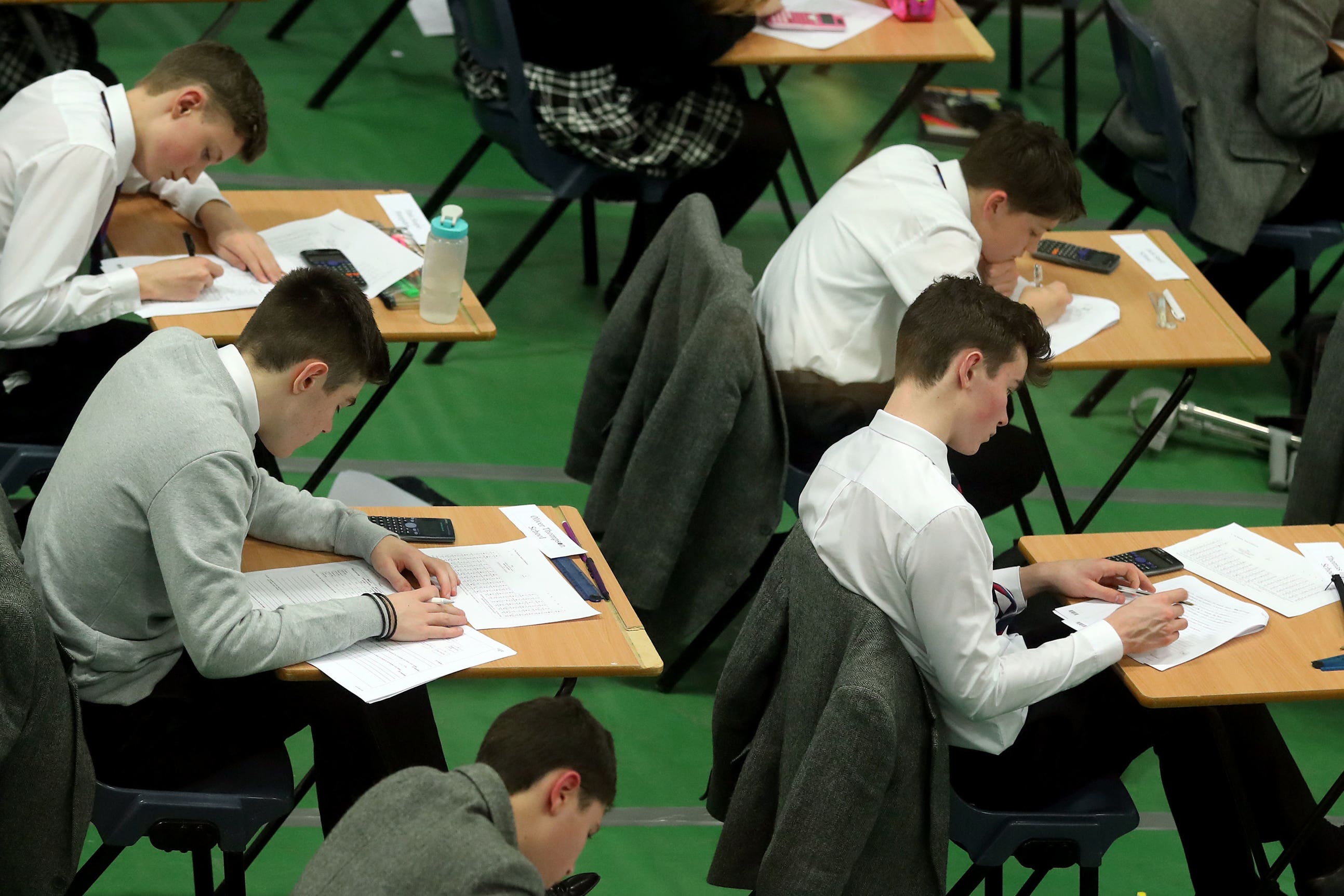Students ‘paying hundreds’ for fake GCSE and A level exam papers sold on TikTok
Exam regulator warns pupils of disqualification risk if caught cheating

Your support helps us to tell the story
From reproductive rights to climate change to Big Tech, The Independent is on the ground when the story is developing. Whether it's investigating the financials of Elon Musk's pro-Trump PAC or producing our latest documentary, 'The A Word', which shines a light on the American women fighting for reproductive rights, we know how important it is to parse out the facts from the messaging.
At such a critical moment in US history, we need reporters on the ground. Your donation allows us to keep sending journalists to speak to both sides of the story.
The Independent is trusted by Americans across the entire political spectrum. And unlike many other quality news outlets, we choose not to lock Americans out of our reporting and analysis with paywalls. We believe quality journalism should be available to everyone, paid for by those who can afford it.
Your support makes all the difference.Students are paying hundreds of pounds for fake exam papers through scams on Instagram, TikTok and Snapchat, it has been reported.
Fraudsters are using social media platforms to sell what are advertised as GCSE or A level papers ahead of tests.
Secondary school pupils have paid up in the hope of seeing what questions might be asked in the test, but exam boards have insisted it is extremely rare for genuine papers to be leaked. Both sets of exams take place between 15 May 15 and 27 June.
Such scams are becoming more popular, with fraudsters charging between £7.50 and £4,000 per paper, according to the BBC.
The Joint Council for Qualifications (JCQ), which represents the eight biggest exam boards, told The Independent: “There has been an increase in the number of social media accounts falsely claiming to sell genuine exam papers.
“These profiles often belong to a single user with multiple accounts, rather than many individuals.”
A 15-year-old GCSE student, who asked to remain anonymous, told the BBC: “Anywhere north of £500 for a paper was the typical offer from multiple accounts for one exam paper.”
"I was taken aback because the prices were ridiculous,” the student added, saying that some of her friends paid up to £900.
"You wouldn't meet a single student across this whole year that has not heard of these accounts. They are everywhere”.
Exams watchdog Ofqual has reminded students that anyone caught cheating, including via procuring genuine papers in advance, could face disqualification.
"You risk not only losing money but the consequences for you are really serious,” a spokesman told the BBC.
The BBC’s investigation found that scammers asked to be sent money via the transfer service Cash App - but after this failed a high street voucher was demanded. This payment was taken but the reporter said that no exam script was received and the account was removed.
Meta, Instagram, TikTok and Snapchat have all said that accounts promoting fraud or scams would be removed if flagged to moderators.

JCQ added that exam boards have dedicated teams who search for these accounts and take them down.
“Furthermore, JCQ and exam boards believe that raising awareness is one of the best ways to tackle these accounts,” the statement added. “Informing students, teachers and parents of this activity means scammers have less chance to exploiting young people and distract them from their studies.”
A Department for Education spokesperson said: “Pupils should not engage with any exam papers or other assessment materials that they see online, as they will probably be fake, and being sold for a price. Students who cheat or commit malpractice face serious sanctions, including being disqualified from the qualification.
“We, Ofqual and exam boards monitor social media frequently to detect any mention of leaked papers. If a pupil suspects an exam paper has been leaked online, they should inform their teacher or exam board immediately so that it can be investigated.”



Join our commenting forum
Join thought-provoking conversations, follow other Independent readers and see their replies
Comments